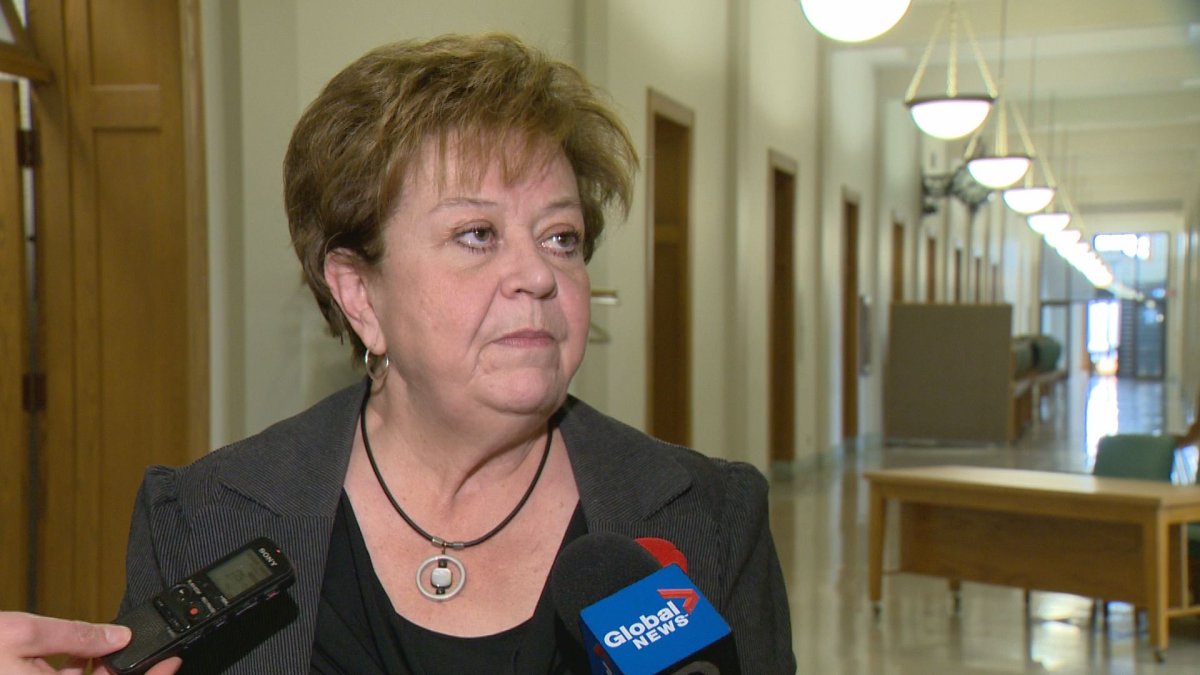The novel coronavirus pandemic and an economic downturn impacted the provincial government’s progress to return to a balanced budget, according to the Saskatchewan Ministry of Finance.

The government released the final results for the 2019-20 fiscal year on Tuesday.
Saskatchewan’s reported deficit of $319 million was $51 million greater than the prior year.
The government said the 2019-20 deficit is attributable to a steep revenue decline in the fourth quarter largely caused by the impact of the pandemic and resulting global market downturn.
“Prior to the global COVID-19 pandemic, Saskatchewan was on track for balanced budgets in 2019-20 and in the current fiscal year,” Finance Minister Donna Harpauer said in a press release.
“Every province in Canada and every jurisdiction in the world has been impacted financially and economically by the global pandemic. However, Saskatchewan is better positioned than most on the path to economic and financial recovery.”
According to the government, the province’s revenue declined by $490 million in the fourth quarter largely due to a $431 million decline in net income from investment losses in the government business enterprises (GBEs), where COVID-19 had a significant impact on the value of insurance sector investment portfolios.
Overall, revenue of $14.89 billion in 2019-20 was up by $386 million compared to the previous fiscal year with significant improvements reported in individual and corporate income taxation from a continued strong tax base, the report says.
These increases were partially offset by weaker investment results reported by GBEs, largely due to the impact that COVID-19 had on global markets in the first quarter of 2020, officials said.
Saskatchewan’s total expenses were $15.21 billion for the fiscal year and represent an increase of $437 million, or three per cent, compared to the previous.
The government said the increase was primarily due to education expense related to pension-related costs and utilization pressures in health care. It added that lower-than-expected agricultural insurance claims due to favourable crop conditions partially offset these increases.
“Our government released a budget on June 15 that meets the challenges presented by the pandemic. I am confident that as Saskatchewan’s economy recovers, our revenues will also recover and we will get back to balance in the coming years,” Harpauer said.
“Our government will continue to assist Saskatchewan people through the pandemic while continuing to invest to stimulate the provincial economy and create jobs.”
The fiscal year ended on March 31, 2020, at which time the government reported an accumulated deficit of $191 million. It said this is the first time this has happened since 2007-08.
Accumulated deficit is the amount by which expense has exceeded revenue from the beginning of incorporation — 1905 — plus any adjustments that were charged directly to it, according to the report. It is calculated as the difference between total assets and liabilities.
Questions about COVID-19? Here are some things you need to know:
Symptoms can include fever, cough and difficulty breathing — very similar to a cold or flu. Some people can develop a more severe illness. People most at risk of this include older adults and people with severe chronic medical conditions like heart, lung or kidney disease. If you develop symptoms, contact public health authorities.
To prevent the virus from spreading, experts recommend frequent handwashing and coughing into your sleeve. They also recommend minimizing contact with others, staying home as much as possible and maintaining a distance of two metres from other people if you go out. In situations where you can’t keep a safe distance from others, public health officials recommend the use of a non-medical face mask or covering to prevent spreading the respiratory droplets that can carry the virus.
For full COVID-19 coverage from Global News, click here.




Comments